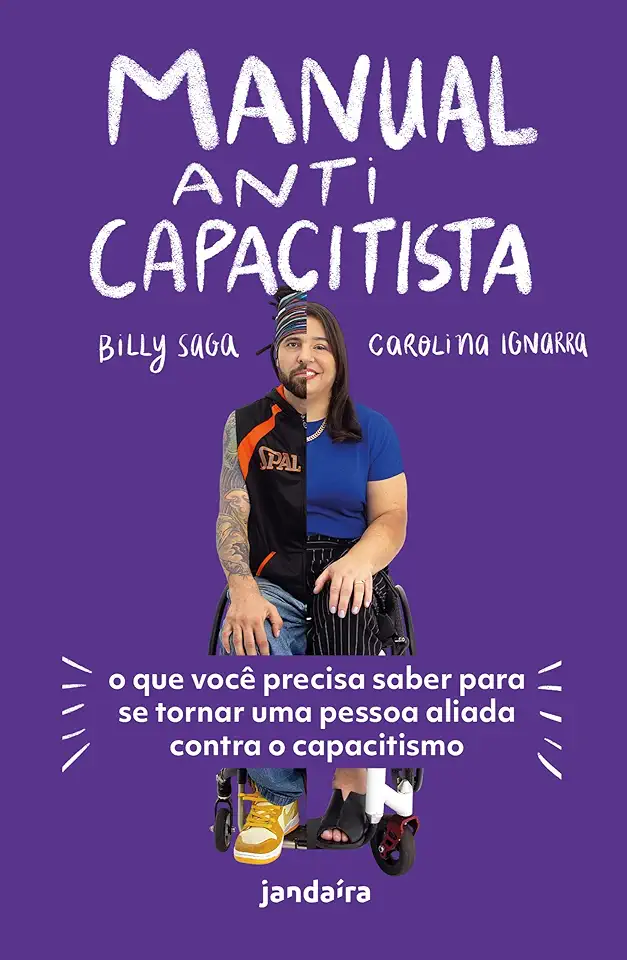
Anti-Ableist Manual - Billy Carolina; Saga
Anti-Ableist Manual: A Guide to Dismantling Ableism and Creating an Inclusive World
In a world that often marginalizes and discriminates against individuals with disabilities, the Anti-Ableist Manual serves as a powerful and comprehensive guide to understanding and combating ableism. Written by Billy Carolina, a passionate advocate for disability rights, this book provides a wealth of knowledge, practical strategies, and personal anecdotes that empower readers to become active agents of change.
Understanding Ableism: The Foundation of an Inclusive Society
The Anti-Ableist Manual begins by defining and exploring the concept of ableism, a pervasive form of discrimination that devalues and marginalizes individuals based on their physical, mental, or sensory abilities. Carolina delves into the historical roots of ableism, tracing its origins to societal attitudes and systems that have long favored able-bodied individuals. By shedding light on the insidious nature of ableism, the book lays the groundwork for readers to recognize and challenge its manifestations in various aspects of life.
Dismantling Ableism: Strategies for Creating an Inclusive Environment
Moving beyond mere awareness, the Anti-Ableist Manual offers practical strategies for dismantling ableism and fostering an inclusive environment. Carolina emphasizes the importance of intersectionality, recognizing that ableism intersects with other forms of oppression such as racism, sexism, and classism. The book provides actionable steps for individuals, organizations, and institutions to create accessible spaces, promote inclusive language, and challenge discriminatory practices.
Personal Narratives: Empowering Voices of Lived Experience
Throughout the book, Carolina shares personal anecdotes and experiences that bring the realities of ableism to life. These narratives humanize the struggles faced by individuals with disabilities and underscore the urgency of addressing ableism. By amplifying the voices of those directly affected, the Anti-Ableist Manual fosters empathy and encourages readers to become allies in the fight for disability rights.
Intersectionality: Disability Justice Beyond Individual Experiences
The Anti-Ableist Manual emphasizes the importance of intersectionality, recognizing that ableism intersects with other forms of oppression such as racism, sexism, and classism. Carolina explores how these intersecting identities shape the experiences of individuals with disabilities and highlights the need for a comprehensive approach to disability justice. By embracing intersectionality, readers gain a deeper understanding of the systemic nature of ableism and are empowered to advocate for inclusive policies and practices that address multiple forms of discrimination.
Building Allyship: Empowering Advocates for Change
The Anti-Ableist Manual concludes by encouraging readers to become active allies in the fight against ableism. Carolina provides guidance on how to educate oneself, challenge ableist language and behavior, and support disability rights organizations. By fostering a sense of collective responsibility, the book empowers readers to use their knowledge and privilege to create a more inclusive and just society for all.
Conclusion: A Call to Action for a More Inclusive World
The Anti-Ableist Manual is a must-read for anyone committed to creating a more inclusive and equitable world. With its comprehensive analysis of ableism, practical strategies for change, and inspiring personal narratives, this book serves as a powerful resource for individuals, organizations, and institutions seeking to dismantle ableism and build a society that embraces diversity and celebrates the unique contributions of all individuals.
Enjoyed the summary? Discover all the details and take your reading to the next level — [click here to view the book on Amazon!]